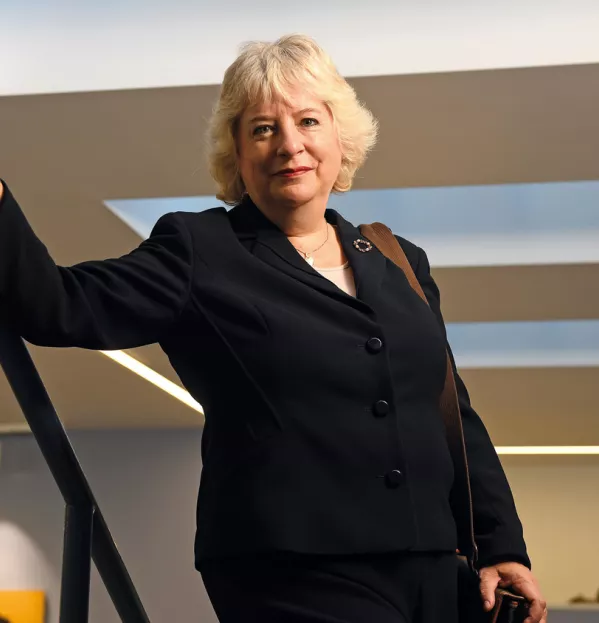
‘Schools need to hear more about what goes on in FE’

The idea for a new cross-sector membership body to improve teaching was first discussed at a headteachers’ residential in 2012. Extensive research and academic publication around a potential body emerged in the years that followed. In addition, a campaign to garner views from teaching professionals to explore how a membership body could be run “by teachers for teachers” gathered interest. This was carried out by the Claim Your College movement, a confusing name for a campaign that made little reference to those who work in colleges. But it led to what has become known as the Chartered College of Teaching.
In 2016, the Department for Education agreed to provide the new organisation with £5 million to help it get established, with a view to it becoming self-sufficient in the long term. The development of the new body, for professionals who work across the entire teaching profession, took place at a time when the FE sector resided, at least partially, in the former Department for Business, Innovation and Skills. Consequently, FE was conspicuous by its absence from the conversation.
With the recent launch of the Chartered College of Teaching, along with the invitation for college teachers to join as founder members, it is hoped that the lack of FE recognition will now be rectified.
Eligibility issues
Although there is no FE representation in the governing body - which claims to be comprised of “volunteers from across the education community and business” - the recently appointed chief executive, Dame Alison Peacock, is clear that all teachers are welcome.
“The chartered college is essentially looking at working with teachers across all sectors, from early years through to FE,” she explains. “Clearly, within FE there are so many specialist routes in terms of vocational education. Schools need to hear more about some of the work that goes on in FE and, similarly, FE colleagues want to hear from schools.”
It’s not about lowest common denominator - this is about raising the bar across teaching, wherever we are
To be a founder member of the fledgling college, one must hold a degree qualification or equivalent (see box, below). The challenge for the chartered college is to encourage FE teachers’ involvement, while retaining its high-level membership criteria. Many FE professionals have significant vocational expertise and teaching qualifications, but do not have a degree, which at this point would exclude them from joining. Dame Alison recognises that this is an issue for some teachers.
“It strikes me that some colleagues in FE will be eligible and excited to become chartered teachers because they will meet the criteria as they currently exist - and we are developing all of this,” she says. “There will be others who will want to work with us to develop potentially a chartered FE route, which may well have different entrance criteria, but will necessarily still be as rigorous. It’s not about lowest common denominator - this is about raising the bar across teaching, wherever we are.”
‘Stronger together’
The Chartered College of Teaching is a voluntary membership body that is creating a knowledge-based community, enabling teachers to connect with research and promoting professionalism. However, an organisation that has a similar offer already exists within the FE and skills sector, namely The Education and Training Foundation’s (ETF) Society for Education and Training (Set). The chartered college has no interest in being perceived as predatory in terms of attracting membership, Dame Alison insists, and is keen to work with other organisations to explore commonality and areas for collaborative support. “The whole purpose of the chartered college is to connect and join up the sectors,” she adds.
Paul Kessell-Holland, head of partnerships at the ETF, is just as optimistic about the possibility of collaboration. “There are no formal plans in place as yet,” he says, “but we see the organisations as mutually supportive and complementary, rather than challenging each other’s position in the education landscape. Exploring best ways of working and combining expertise are planned in the near future.”
He recognises that the specific remits of the two organisations provide a variation in offer, which will be more attractive to the individual practitioner dependent on subject or vocational specialism.
“Set is strongly focused on further education and training, and the more vocational side in schools,” he says. “The college’s main focus is schools, but not exclusively so. For most, it will be quite clear which is the more useful.”
While the FE and skills sector might have been overlooked in the initial planning of the Chartered College of Teaching, it is clear that its new CEO is a keen supporter of the sector and ambitious about its potential role within the new membership body.
“I’m very aware that the work that goes on in FE is often about giving people another chance in life,” Dame Alison says. “And what better thing to be doing than that? The last thing that I want to be doing in the Chartered College of Teaching is to in any way diminish that. I’m very keen that we understand more about FE and raise the status of the teaching profession across the board. I think we’re stronger together.”
Sarah Simons works in colleges and adult community education in the East Midlands, and is the director of UKFEchat. She tweets @MrsSarahSimons
You need a Tes subscription to read this article
Subscribe now to read this article and get other subscriber-only content:
- Unlimited access to all Tes magazine content
- Exclusive subscriber-only stories
- Award-winning email newsletters
- Unlimited access to all Tes magazine content
- Exclusive subscriber-only stories
- Award-winning email newsletters
You need a subscription to read this article
Subscribe now to read this article and get other subscriber-only content, including:
- Unlimited access to all Tes magazine content
- Exclusive subscriber-only stories
- Award-winning email newsletters
- Unlimited access to all Tes magazine content
- Exclusive subscriber-only stories
- Award-winning email newsletters